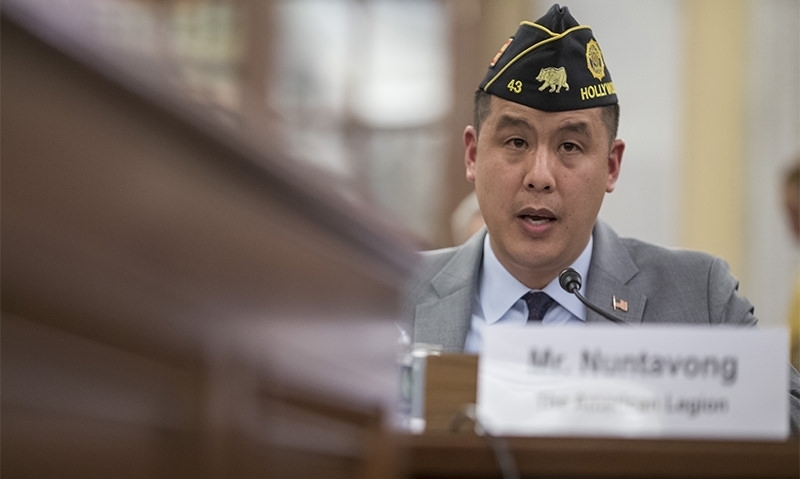
The American Legion remains committed to fighting for the rights and benefits Blue Water Navy veterans are entitled to despite pushback from the VA.
In a letter to the Senate Committee on Veterans’ Affairs (SVAC), newly-confirmed VA Secretary Robert Wilkie doubled down on VA’s assertion that there is no basis for the presumption of Agent Orange exposure for Blue Water Navy veterans.
“We know it is incredibly difficult to hear from Blue Water Veterans who are ailing and ill, and we have great empathy and compassion for these veterans and their families,” Wilkie wrote. “However, we urge the Committee to consider the scientific evidence, impact on other veterans, and costs associated with this legislation."
The VA remains opposed to the bill, which will extend disability benefits covering medical conditions associated with Agent Orange to veterans who served off the coast of Vietnam, despite overwhelming support from Congress and veterans service organizations, including The American Legion. Only those who served on land and in Vietnam’s inland waterways are presently eligible to receive these benefits.
“The American Legion remains committed to fighting for the benefits of Blue Water Navy veterans,” said Chanin Nuntavong, national director of The American Legion's Veterans Affairs and Rehabilitation Division. “These patriotic Americans faithfully served their country and honorably performed their duties. It is only right that the VA take care of them now that they are ill with diseases consistent with Agent Orange exposure.”
The American Legion in 2016 passed Resolution No. 246: Blue Water Navy Vietnam Veterans, supporting "legislation to amend Title 38, United States Code, to presume exposure to Agent Orange for any military personnel who served during the Vietnam War on any vessel that came within 12 nautical miles of the coastlines of Vietnam,” asserting the Legion’s stance on fighting to ensure Blue Water veterans receive the benefits they deserve.
Wilkie’s message echoes that of Paul Lawrence, under secretary for benefits at the VA, who testified Aug. 1 before the SVAC citing there is insufficient evidence from the Institute of Medicine to support claims of exposure to the defoliant chemical.
“We oppose this bill because the science is not there, and we depend on science,” he said. “We care, so we keep looking.”
“In late 2019, VA will publish the peer-reviewed Vietnam Era Health Retrospective Observational Study,” Wilkie said. “VA recommends waiting on the findings of the study instead of establishing a new presumption without a scientific basis.”
Despite Wilkie and Lawrence’s opposition, H.R. 299 passed unanimously out of the House with a vote of 382-0. No announcement on when the legislation could move forward has been made by the SVAC.
- Legislative

